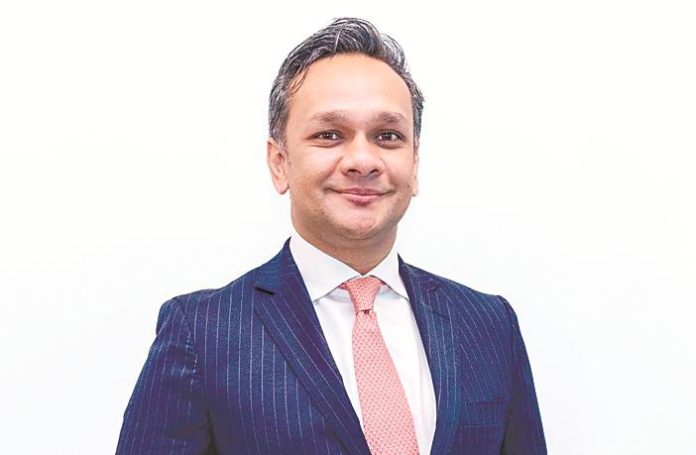KUALA LUMPUR: As Malaysia advances in its digital evolution, artificial intelligence-driven cities are taking centre stage – serving as dynamic hubs to attract investment, foster groundbreaking innovation and create equitable economic opportunities for all.
Malaysia Digital Economy Corporation (MDEC) CEO Anuar Fariz Fadzil shared the agency’s blueprint for transforming Malaysia from a regional technology hub into a globally respected digital economy over the next decade.
“Looking 10 years ahead, we see a Malaysia where AI integrates seamlessly into daily life, enabling equitable access to tools and opportunities. This future is about making cities more sustainable, citizen-centric, and competitive,“ he told SunBiz.
Anuar Fariz said this vision entails the responsible integration of AI, providing predictive and efficient public services and creating thriving smart cities that are both sustainable and people-focused. “Startups and SMEs will scale beyond borders, supported by robust infrastructure that drives inclusive, digital-led prosperity.”
Building on MDEC’s mandate to catalyse high-value digital growth and position Malaysia as a regional technology leader, Anuar Fariz said, AI Cities will be the cornerstone of the transformation.
“It will unite digital policy, innovation and public service to drive inclusive, competitive and sustainable growth, laying the foundation for Malaysia’s vision of becoming an ‘AI Nation’,“ he said.
Anuar Fariz said this vision not only elevates Malaysia’s leadership in AI development and adoption but also creates a scalable model for Asean, fostering cross-border collaboration, knowledge exchange, and regional digital resilience. “Through partnerships across the public, private, academic sectors, and the rakyat, Malaysia aims to amplify its impact across Southeast Asia’s digital economy.”
As part of its AI Cities initiative, MDEC is already implementing targeted, high-impact smart city pilots in selected locations, starting with Putrajaya.
“In Putrajaya, we are applying parametric modelling to simulate real-world urban scenarios. This allows us to test and refine planning decisions, improve service delivery, and optimise resource use,“ Anuar Fariz said.
He added that data from Putrajaya’s Urban Observatory is being used to develop an interactive AI-powered digital avatar capable of delivering real-time analytics for city planning and citizen engagement.
MDEC is also working closely with the National Artificial Intelligence Office (NAIO) to ensure that Malaysia’s AI growth is underpinned by strong governance and public trust.
“Trust is the foundation of digital adoption. Together with NAIO, we are developing a regulatory brief to guide the responsible use of AI, one that balances innovation with transparency, ethics and accountability,“ Anuar Fariz said.
These initiatives support Malaysia’s broader goals outlined in the Fourth National Physical Plan, Malaysia Digital Economy Blueprint, Asean Smart Cities Network and the upcoming 13th Malaysia Plan (2026–2030).
Anuar Fariz said MDEC’s goal is to catalyse future-facing, collaborative ecosystems where technology serves both people and progress.
“By embedding intelligence into how our cities are designed, managed and experienced, we’re not only building a smarter Malaysia, we’re laying the foundation for a resilient, inclusive and competitive digital nation that can lead the region,“ he added.
MDEC’s vision will take centre stage at the Smart City Expo Kuala Lumpur 2025 (SCEKL25), which will be held from Sept 17 to 19 at the Kuala Lumpur Convention Centre.
Themed “AI Cities: Shaping Our Digital Future”, the event will serve as a platform for regional dialogue, innovation exchange and policy alignment with Malaysia’s Asean Chairmanship this year.
“As the first Southeast Asian edition of the globally renowned Smart City Expo World Congress, SCEKL25 will position Malaysia as a central hub for smart city development and digital leadership in the region,“ Anuar Fariz said.
The expo will bring together more than 2,000 delegates and 10,000 visitors, including global experts, city leaders and technology providers across sectors.
The agenda is built around four strategic pillars – AI cities, sustainable and resilient cities, digital entrepreneurship and economic development, and community empowerment through digital solutions.
SCEKL25 will also feature keynote sessions by renowned global figures, including Dr David Hanson, creator of Sophia the Robot, urban strategist Dr Alfonso Vegara and futurist Penny Wong, among others.
“These conversations will help shape the next decade of digital city-building, not just in Malaysia, but across Asean,“ said Anuar Fariz.








